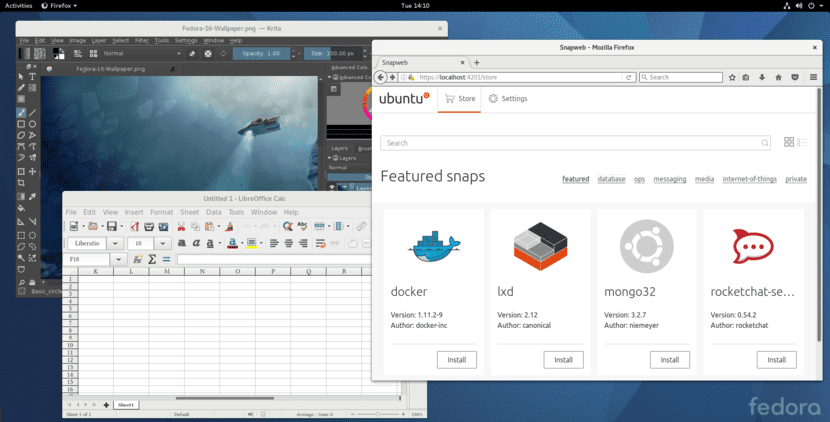
One of the most outstanding novelties that came with Ubuntu 16.04 LTS Xenial Xerus were the snap packages. Until then, and although most software is still in APT repositories, the software was uploaded to repositories from where we downloaded the software, which meant that, among other things, the software took much longer to update. In the beginning, the Snap packages were only available for Ubuntu, but Canonical has always had among its plans that they could be used in other distributions.
As of today, as we can read in an entry On the Ubuntu Insights blog, support for using Snap packages is available in Fedora 24 and later versions. At first, and if I'm not mistaken, the commands that we will use in Fedora will be the same as in Ubuntu, although the package will have to be installed first. snapD. Below you have all the information you need to know.
Installing Snap packages in Fedora
- To install Snap packages in Fedora, the first thing we will have to do is install the package snapD using command:
sudo dnf install snapd
- Once installed snapD, we will have to activate systemd with the command:
sudo systemctl enable --now snapd.socket
- Finally, to install this type of package in Fedora we will use the same command as in Ubuntu as in the following example:
sudo snap install hello-world
As we read in the Ubuntu Insights blog post, the main reason to use Snaps is that we will be able to install the updates as soon as their developers have them ready. By not having to submit the software to repositories, updates will be offered to us instantly when we launch the application, which is especially important when what has been included in the new version are security patches.
Have you already started using Snap packages in Fedora?